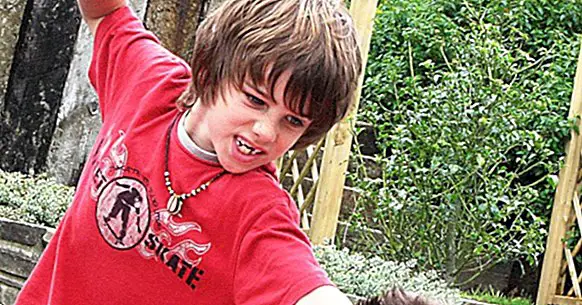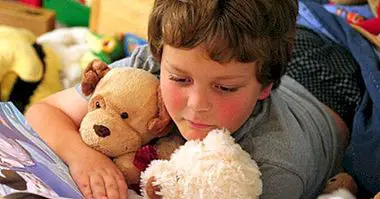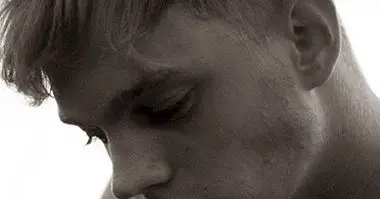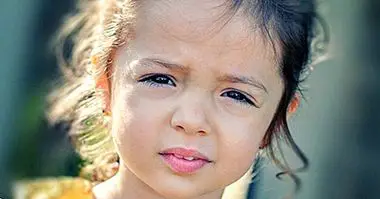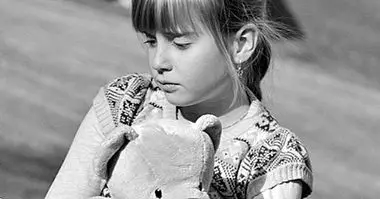My son beats other children: what to do to fix it?
If bullying and aggression among minors in general is a social problem, it is partly because many parents do not face this kind of situation when their children beat other children. This asymmetry makes the victims receive all the pressure, while in the family environment of the aggressors, permissiveness reigns.
Fortunately, there are adults who take the first step to solve this kind of situation, and ask themselves "What to do if my child beats other children at school or outside of school? ”.
In this article we will review several tips and guidelines to follow so that this behavior ceases to occur, acting on the education of the child. Thus, regardless of whether a child engages in bullying dynamics or beats his brother, we will avoid further damage.
- Related article: "The 5 types of bullying or bullying"
What to do if a child beats other children regularly
Any change requires time and effort, and that means that although it would be desirable for our son or daughter to stop trying to attack others overnight, that is not usually the case. Our efforts must be focused on making the change happen as quickly as possible and that the least inconvenience to others be caused during this process.
Therefore, educational actions must be varied and must be applied in many areas of the child's life that gives problems.
1. Take it to the psychologist
Many behavior problems of children can be solved without the intervention of psychologists, but the fact of hitting other children regularly is serious enough to act in a manner consistent with our concern and turn to professionals who offer personalized psychological care .
Therefore, the steps that we will see below should be initiatives that complement the psychological intervention and, in case of doubt, it is important to obey the indications of that person, given that his knowledge of the concrete case allows him to offer solutions that adapt to what is happening.
2. Make him feel supported in the process of change
It is clear that mistreating other people is bad morally, but that does not mean that our behavior towards our son or daughter should be guided by revenge or for the encouragement of causing physical or psychological harm. Everything we do in relation to the aggressiveness of the child should be oriented to stop having these tendencies, and nothing else.
Therefore, you should feel support in your parents, notice that you have a way to redeem yourself by striving to change habits and ways to manage your impulses. You need to feel responsible for the pain you cause others when you hit, but that does not mean that the weight of our intervention in your education should be focused on the feeling of guilt. It must focus on the positive and constructive mission of maturing as a person, to be better.
3. Shows exemplary behavior
Not all children who show a tendency towards aggressiveness with their peers do so because they have taken an example from their parents. But, in any case, it is advisable to be especially careful to the other manage our own frustrations well by assimilating situations that make us angry.
It is better not only not to do it in front of that child who beats other children, but in all our behavior in general, so that it is a more natural and spontaneous tendency.
In addition, in this way we will prevent our son or daughter from justifying his attacks and aggressions thinking that our anger is a reflection of what he does with others, that after all everyone engages in actions that create gratuitous and unjustified confrontations .
4. Be interested in your feelings
It is important to have regular communication with our children, especially if they have been beating others, to give them the opportunity to express their discomfort. Many times that aggressiveness is the product of frustrations that have nothing to do with the victim and, even, these can be born at home . In addition, this habit of asking how they feel makes them feel supported and that they see aggression and hostility as an anomaly.
- Maybe you're interested: "The 8 types of family conflicts and how to manage them"
5. Make sure you meet the goals of therapy
The work that is done in the consultation of the psychologist must have consequences in the day to day of the child, not only lasts the time during which the session passes. Keep abreast of therapeutic goals to follow and monitor compliance or non-compliance .
6. Act when you start aggressive behavior
Each time they begin to give the signs that they are going to give themselves the behavior of attack, either physical or verbal, we must intervene reminding them of their commitment to change or avoiding it physically if there is no other solution. This "relapse" must have consequences, although as we have not seen, not oriented to suffering, but to the fact that it reinforces its commitment to a peaceful and non-violent attitude.

